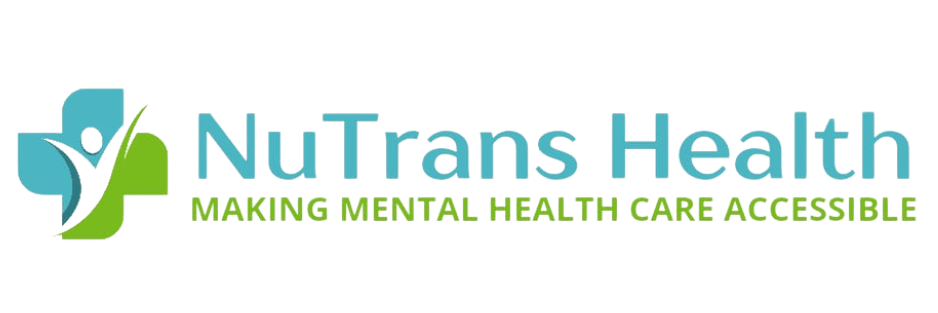Mental Health Resources to Support for Raleigh’s College Students
I. Introduction
II. The Mental Health Landscape for College Students in Raleigh
College life in Raleigh can be exciting for students with many growth opportunities. However, college life also introduces fresh academic challenges. Many students juggle coursework and, in some cases, employment responsibilities. Apart from these, they have to manage their relationships alongside growing academic expectations. The prevalence of anxiety alongside depression keeps rising among young adults nationwide. A recent study was conducted on 1.7 million participants whose average age was 14, with 51% being male. Of these, around 50% were Hispanic, 8% non-Hispanic Asian, 8% non-Hispanic Black, and 23% non-Hispanic White. From 2017 to 2021, depression diagnoses increased by 55.6% in new cases and 60.0% in overall cases. Anxiety without depression also rose by 31.1% in incidence and 35.2% in prevalence. These trends were statistically significant (P < .001). In Raleigh, the need for tailored mental health resources is more critical than ever. Statewide data shows an alarming rise in youth mental health crises. As a result, universities and care providers are evolving their services to meet students’ changing needs.
III. What are the Warning Signs of Stress to Watch Out For?

IV. Where Can I Get On-Campus Mental Health Resources in Raleigh?
College campuses exist beyond education. They also provide essential support services to students. Raleigh institutions provide students with affordable and free mental health services. For instance, NC State offers individual therapy sessions along with group workshops and crisis response through their Counseling Center. The counseling centers at Meredith College and Shaw University provide mental health services designed to address their students’ needs. These services are confidential and designed to help students manage everything from academic stress to personal struggles. Students don’t need a diagnosis to reach out. Sometimes, talking to a counselor is just a smart way to check in. Appointments are usually flexible and can fit around class schedules. Many schools now offer virtual counseling too, which makes it even easier to get help. In short, your campus may have more mental health resources than you realize. Taking the first step to use them can lead to real growth and relief.
V. Off-Campus and Community-Based Mental Health Support in Raleigh
Students might need additional help beyond what campus services offer. Some students may find that these services do not match their needs. College students who need additional help after using campus resources can find support through community-based and virtual services. Raleigh offers many off-campus resources designed specifically for young adults. You’ll find local clinics, nonprofit organizations, and private therapists who understand the challenges students face. Many also specialize in supporting diverse identities, including BIPOC, LGBTQIA+, and first-generation college students. If convenience matters, virtual care is a great solution. NuTrans Health offers telehealth therapy and uses AI to find you a therapist who fits your needs. This makes it easier to find someone you connect with, without long wait times. Plus, flexible scheduling means you can fit sessions around your classes or job. Altogether, these off-campus and virtual options expand your support system beyond the school gates.
VI. What Tips Can Help with Managing Mental Health in College Life?
College life provides both exhilarating and overwhelming experiences to students. Between classes, exams, and social life, it’s easy to feel stretched thin. Therefore, building healthy habits is essential for a balanced mind, better focus, and long-term emotional resilience. Start with the basics: get enough sleep, eat regular meals, and stay active. Even a short walk or stretch break can improve your mood. Next, create routines that give your day structure. Having a consistent schedule can help alleviate anxiety and improve focus. It’s also important to set boundaries with your time and energy. Learn to say no when you need to rest or recharge. Additionally, make time for things that bring you joy, like music, hobbies, or catching up with friends. Over time, these small choices can build resilience and help you handle college life with more confidence.
VII. How Can Parents, Roommates, and Friends Can Help Cope with Stress?

Supporting the ones you love may not always require professional help. Being present, along with active listening skills, makes a positive difference in most situations. Observing behavioral changes in people, such as mood swings, isolation, and
persistent stress,
can determine if they require checking in. Start your inquiry by asking directly, “How are you really doing?” Then listen without judgment.
The following tips
demonstrates particular ways you can help:
- Check in regularly and genuinely.
A casual “How’s your week going?” can open the door to deeper conversations. Don’t wait for a crisis. Make check-ins a habit.
- Listen without trying to fix everything.
Sometimes people just need someone to hear them out. Avoid rushing to give advice. Instead, offer a calm, compassionate presence.
- Encourage them to seek help, but don’t pressure them.
Let them know it’s okay to talk to a counselor and that mental health support is normal and healthy. Offer to help with scheduling or research if needed.
- Respect boundaries and privacy.
If someone isn’t ready to talk, let them know you’re available when they are. Avoid sharing their situation with others unless it’s a safety issue.
- Know when to seek extra support.
If you’re seriously worried about someone’s well-being, such as if they mention self-harm, suicidal thoughts, or severe withdrawal, don’t stay silent. Reach out to a trusted adult, campus counselor, or crisis line for guidance.
- Take care of your own mental health, too.
Supporting someone else can be emotionally taxing. Make sure you also have someone to talk to and take time to care for yourself.
Ultimately, small acts of care, when consistently offered, can have a lasting impact. You don’t have to have all the answers. Just being there can mean the world.
VIII. Final Thoughts
College life can be overwhelming, but students never have to face it alone. Raleigh students have access to genuine support with inclusive options. Resources on campus continue to expand through campus centers, together with technological resources such as NuTrans. Prioritizing mental health will help students find a path to successful growth. Ultimately, knowing where to turn is the first step toward a healthier, more empowered student life.

